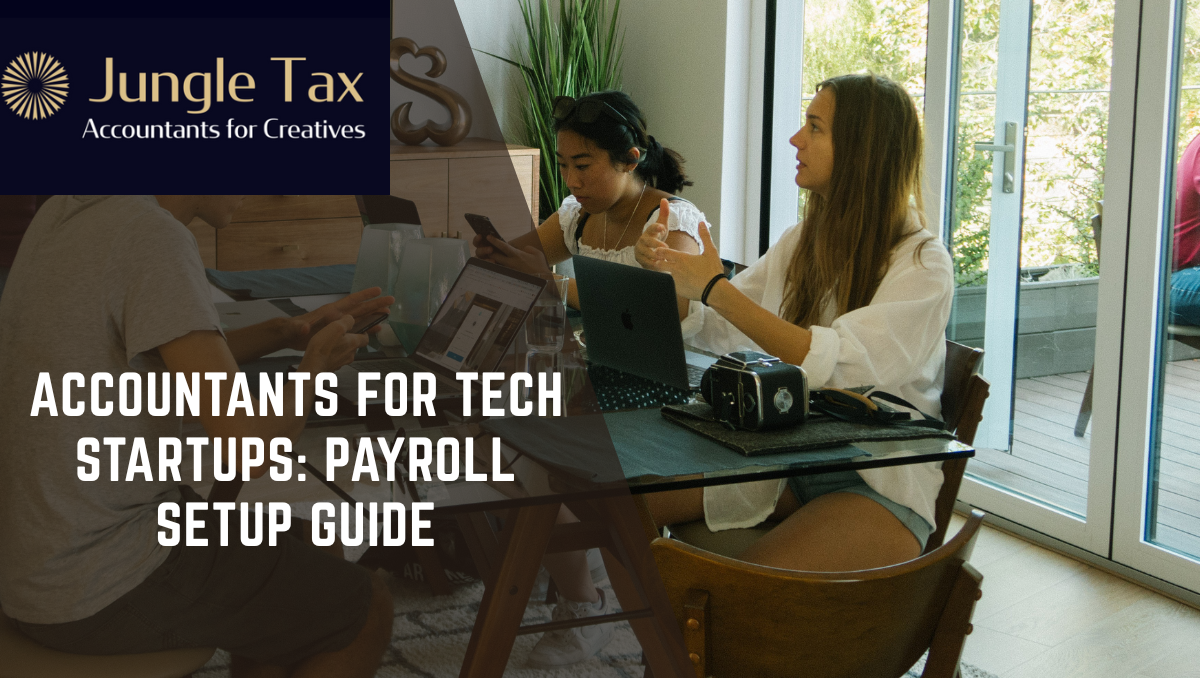
Introduction
Setting up payroll for a small tech startup can feel overwhelming. From tax obligations to compliance rules, every decision matters. Working with Accountants for Tech Startups ensures your team stays compliant while saving time and avoiding costly mistakes. Payroll errors can lead to penalties, fines, and unhappy employees, making expert guidance crucial.
Whether you’re based in the UK or the US, understanding local payroll rules, deductions, and reporting requirements is vital for smooth operations. This guide breaks down everything you need to know, offering practical steps, real-world examples, and insights to make payroll setup stress-free.
Understanding Payroll Challenges in Tech Startups
Small tech teams often face unique payroll challenges. Unlike large corporations, startups usually lack a dedicated HR department, making payroll management a challenging task. Common challenges include:
- Employee classification: Differentiating between contractors, freelancers, and full-time employees affects tax liabilities.
- Compliance with local tax laws: UK startups must follow HMRC rules, while US startups need to adhere to IRS and state regulations (gov.uk payroll guidance) (irs.gov payroll overview).
- Automated payroll systems: Selecting software that integrates seamlessly with accounting systems and supports multi-country operations is crucial.
Engaging Accountants for Tech Startups helps tackle these challenges proactively, ensuring you avoid penalties and maintain high employee satisfaction.
Choosing the Right Payroll System
Selecting the correct payroll system is one of the most critical steps. Startups need software that:
- Automates tax calculations
- Tracks deductions and benefits
- Supports employee self-service portals
- Integrates with accounting tools
Some popular options include Xero, QuickBooks, and Gusto. UK-specific platforms, such as Sage Payroll, also help startups stay compliant (sage.com/payroll-solutions).
Your accountant can recommend the best system tailored to your business size, growth plans, and compliance needs. Automated payroll reduces errors, allowing founders to focus on innovation rather than administrative tasks.
Employee Classification and Tax Implications
Correctly classifying your team members is essential. Misclassification can trigger audits and penalties. Startups typically have:
- Full-time employees: Standard payroll deductions, including income tax and social security contributions in the US, or PAYE and NICs in the UK (hmrc.gov.uk employers).
- Contractors/Freelancers: Usually responsible for their own taxes, but some jurisdictions may require specific filings.
- Part-time staff: Prorated benefits and tax calculations.
Accountants for Tech Startups ensure accurate classification, reducing risk while optimising tax efficiency. For example, in the US, the IRS Worker Classification Guidelines clarify the responsibilities of employees versus contractors.
Setting Up Payroll for Compliance
Compliance is non-negotiable. In the UK, startups must:
- Register as an employer with HMRC
- Submit Real Time Information (RTI) reports.
- Deduct PAYE, NICs, and pension contribution.s
In the US, compliance includes:
- Federal and state tax filings
- Social Security and Medicare contributions
- Unemployment insurance contributions
Accountants can create payroll calendars, automate deductions, and submit accurate reports on time. For instance, HMRC penalties for late submissions can be avoided by timely reporting (hmrc penalties).
Integrating Payroll with Accounting Systems
Linking your payroll system to your accounting software ensures accurate bookkeeping and makes tax filing easier. Integration provides:
- Real-time tracking of expenses
- Simplified monthly financial reporting
- Quick reconciliation of payroll accounts
Popular integrations include Xero Payroll with QuickBooks or Gusto, as well as integration with various ERP platforms. Efficient integration reduces manual errors and helps startups maintain accurate and up-to-date financial records for investors and tax authorities.
Managing Benefits and Deductions
Startups must manage employee benefits correctly. These may include:
- Pension contributions in the UK (auto-enrolment guidance)
- Health insurance or retirement plans in the US (irs.gov benefits)
- Stock options or equity for tech employees
Accountants for Tech Startups optimise deductions to reduce payroll costs while maintaining compliance. For example, auto-enrolment pensions in the UK have strict deadlines that accountants can manage efficiently.
Handling Multi-Country Teams
Many tech startups have distributed teams across countries. Payroll management becomes more complex with:
- Differing tax laws and filing requirements
- Currency conversions and remittances
- Local employment regulations
Accountants can ensure each jurisdiction is handled correctly. Using platforms like Deel or Remote helps manage cross-border payroll efficiently (see the Remote.com payroll guide).
Common Payroll Mistakes and How to Avoid Them
Startups often make mistakes that could have been avoided with professional guidance:
- Misclassifying contractors as employees
- Delaying tax filings
- Incorrectly calculating deductions
- Not tracking overtime or bonuses.
A qualified accountant prevents these issues, saving startups time and money. For instance, HMRC’s compliance checks have increased in recent years HMRC compliance), making professional oversight crucial.
Benefits of Hiring Accountants for Tech Startups
Hiring accountants provides multiple advantages:
- Ensures compliance with HMRC, IRS, and state regulations
- Reduces the risk of penalties and fines
- Improves cash flow through accurate tax planning
- Frees founders to focus on core business activities
Startups also benefit from expert advice on payroll optimisation, scaling financial operations, and investor reporting. Internal finance teams can focus on strategy, while accountants handle compliance and execution.
Conclusion
Setting up payroll for a small tech startup doesn’t have to be daunting. By working with Accountants for Tech Startups, founders can ensure compliance, optimise deductions, and create a seamless payroll system. From employee classification to cross-border management, professional guidance simplifies every step. Proper payroll management also fosters trust with employees, supports scalability, and maintains your startup’s financial health.
Hiring an expert ensures your tech startup remains compliant in both the UK and the US while maximising efficiency and accuracy.
FAQs
Accountants ensure compliance, reduce errors, and optimise payroll efficiency for startups in both the UK and the US.
Yes, experienced accountants manage tax laws, currency conversions, and local regulations across multiple countries.
Payroll should be reviewed monthly to ensure accuracy, timely submissions, and compliance with HMRC and IRS guidelines.
Popular tools include Xero, QuickBooks, Sage, and Gusto, all of which are integrated with accounting systems for enhanced efficiency.
Yes, accountants optimise pensions, healthcare, equity, and other deductions while ensuring compliance with UK and US laws.
